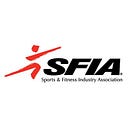Tariff Relief Under the Generalized System of Preferences (GSP)
PROVIDED BY MICHAEL DOANE, MILES & STOCKBRIDGE
The tariff landscape faced by those importing products into the United States seems to be ever-evolving. However, there are mechanisms available that may provide some relief. The Sports and Fitness Industry Association (SFIA) has sought relief for its members through petitions for exemption or exclusion from various China tariffs and miscellaneous tariff bill petitions that may provide duty suspensions or duty reductions for specific classes of imported products. Another type of tariff relief that SFIA members should consider is under the Generalized System of Preferences (GSP), which provides duty-free entry for certain types of products from developing countries.
What Is the GSP?
The GSP is a program designed to permit the duty-free importation of certain products from GSP beneficiary developing countries (BDC) into the United States. Some countries are further designated least-developed beneficiary developing countries (LDBDC), thus permitting certain additional goods from these countries to receive GSP status. There are currently 118 countries and territories designated as BDCs of which 44 are further designated as LDBDCs. In 2018, the top five GSP beneficiaries were India, Thailand, Brazil, Indonesia and Turkey. However, GSP eligibility for Turkey and India was removed in May and June 2019, respectively. Countries and territories eligible for GSP treatment are identified in the Harmonized Tariff Schedule of the United States (General Note 4), which is available on the U.S. International Trade Commission website, https://hts.usitc.gov/current.
There are approximately 3,500 products that are eligible for duty-free GSP treatment from all BDCs and approximately 1,500 additional products that receive duty-free GSP treatment from LDBDCs. Products of interest to SFIA members that are currently on the list include various types of travel, sports and similar bags; batting gloves; gloves, mittens and mitts specially designed for use in sports; and racket strings. Lists of GSP-eligible products can be found on the website of the Office of the United States Trade Representative at https://ustr.gov/issue-areas/trade-development/preference-programs/generalized-system-preferences-gsp/gsp-program-i-0.
How Does an Importer Claim GSP Duty-Free Treatment?
In order to obtain duty-free treatment under GSP, the product must first be on the list of GSP-eligible products. The product must be imported directly to the United States from a BDC that is eligible for GSP treatment for that particular product. The product must be “the growth, product, or manufacture” of the BDC and satisfy certain value-added requirements. In other words, it cannot simply be transshipped through the BDC on its way to the United States. Finally, the importer must request duty-free treatment on its importation documents using the appropriate GSP Special Program Indicator (SPI).
Can the List of GSP-Eligible Products or Countries Be Modified?
The GSP Subcommittee of the Trade Policy Staff Committee, chaired by the United States Trade Representative, conducts an annual review of the GSP program and accepts petitions from “interested parties” regarding products that should be added or removed from the list. In general, an interested party is someone with an economic interest in the subject matter of the request, such as an importer or retailer of the product at issue, a domestic producer of the same or similar product, or a foreign government. The annual review is initiated by a notice published in the Federal Register, usually in March, requesting petitions and giving a specific deadline. The petitions must conform to certain detailed rules and are subject to a public hearing if accepted for review.
A petition must contain detailed information regarding the production of the product and the quantity of imports and potential imports of the product into the United States should the petition be granted. Factors that will be considered in reviewing the petition are:
1. The effect the requested action will have on the economic development of the BDC;
2. The extent other major developed countries are making similar efforts;
3. The anticipated impact of U.S. producers, if any, of similar or competitive products; and
4. The extent of the BDC’s competitiveness with respect to the eligible products.
It should be noted that there are certain products that are not eligible for GSP treatment, such as certain types of textiles, certain types of apparel and footwear, and various import-sensitive steel, glass and electronic products. In addition, BDCs and GSP-eligible products are subject to competitive-need limitations. However, these may be waived.
SFIA will be offering a webinar about GSP and the process for filing petitions.
Disclaimer: This is for general information and is not intended to be and should not be taken as legal advice for any particular matter. It is not intended to and does not create any attorney-client relationship. The opinions expressed and any legal positions asserted in the article are those of the author and do not necessarily reflect the opinions or positions of Miles & Stockbridge, its other lawyers or the Sports and Fitness Industry Association Newsletter and Blog.
Michael L. Doane is a principal in Miles & Stockbridge’s Intellectual Property & Technology Practice Group in Tysons Corner, Virginia. He litigates unfair trade cases before the U.S. International Trade Commission (ITC) under Section 337 of the Tariff Act of 1930. He has represented parties in more than sixty Section 337 investigations, addressing such unfair acts as patent infringement, design patent infringement, and trade dress infringement. He is a contributing author to all three editions of the American Bar Association’s “A Lawyer’s Guide to Section 337 Investigations Before the U.S. International Trade Commission.” He also is a past president and executive committee member of the ITC Trial Lawyers Association and the chair of the American Intellectual Property Law Association’s ITC Committee.
